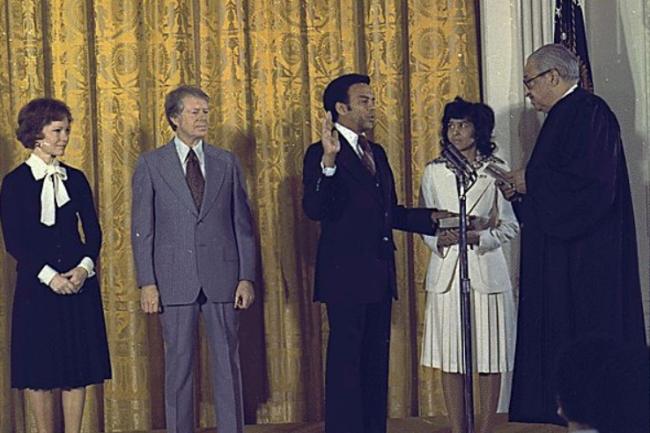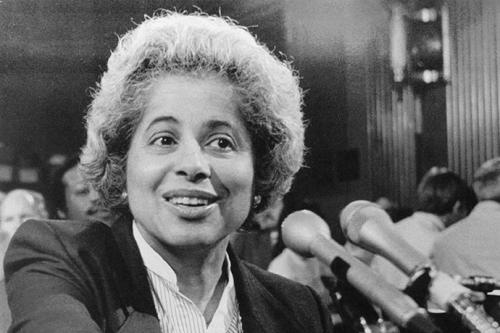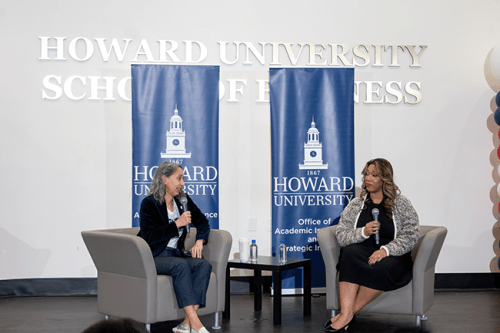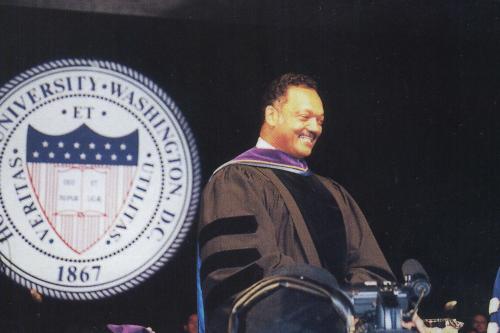Above image: Andrew Young (B.S. ’51) is sworn in as Ambassador to the United Nations by fellow Howard alumnus Supreme Court Justice Thurgood Marshall (J.D. ’33). Young was appointed by President Jimmy Carter (second from left). Source: National Archives.
As the world mourns the loss of the 39th President of the United States, Jimmy Carter (James Earl Carter, Jr), Howard University remembers the many contributions he made to the country he proudly served, as well as his legacy of championing inclusion and diversity within some of its highest offices.
President Jimmy Carter, born October 1, 1924, in Plains, Georgia, passed away on December 24, 2024, at the age of 100. A member of the Democratic party, he served as governor of Georgia from 1971 to 1975, and in the state senate from 1963 to 1967, before ascending to the presidency in 1977. His term saw several firsts, including his appointment of Howard alumni Patricia Roberts Harris (B.A. ’45) to his cabinet. Harris served as President Carter’s Secretary of the Department of Housing and Urban Development, becoming the first Black woman to occupy that role.
A recent NBC News article refers to President Carter’s term as a “springboard for Black women in politics,” pointing out the appointment of Harris in 1977, as well as his work to elevate other Black women in positions of government, including judgeships, and his nomination of Alexis M. Herman as director of the Woman’s Bureau in the Labor Department, who would later become the first Black woman to be Secretary of Labor under President Bill Clinton. In the article, Herman credits her introduction to the former president to Andrew Young (B.S. ’51), another Howard alumni touched by President Carter. President Carter’s legacy of supporting women is well-documented. According to data from the Office of the U.S. Courts in a recent Washington Post article, he appointed five times more women and three times more people of color to the judiciary than all previous presidents, combined.
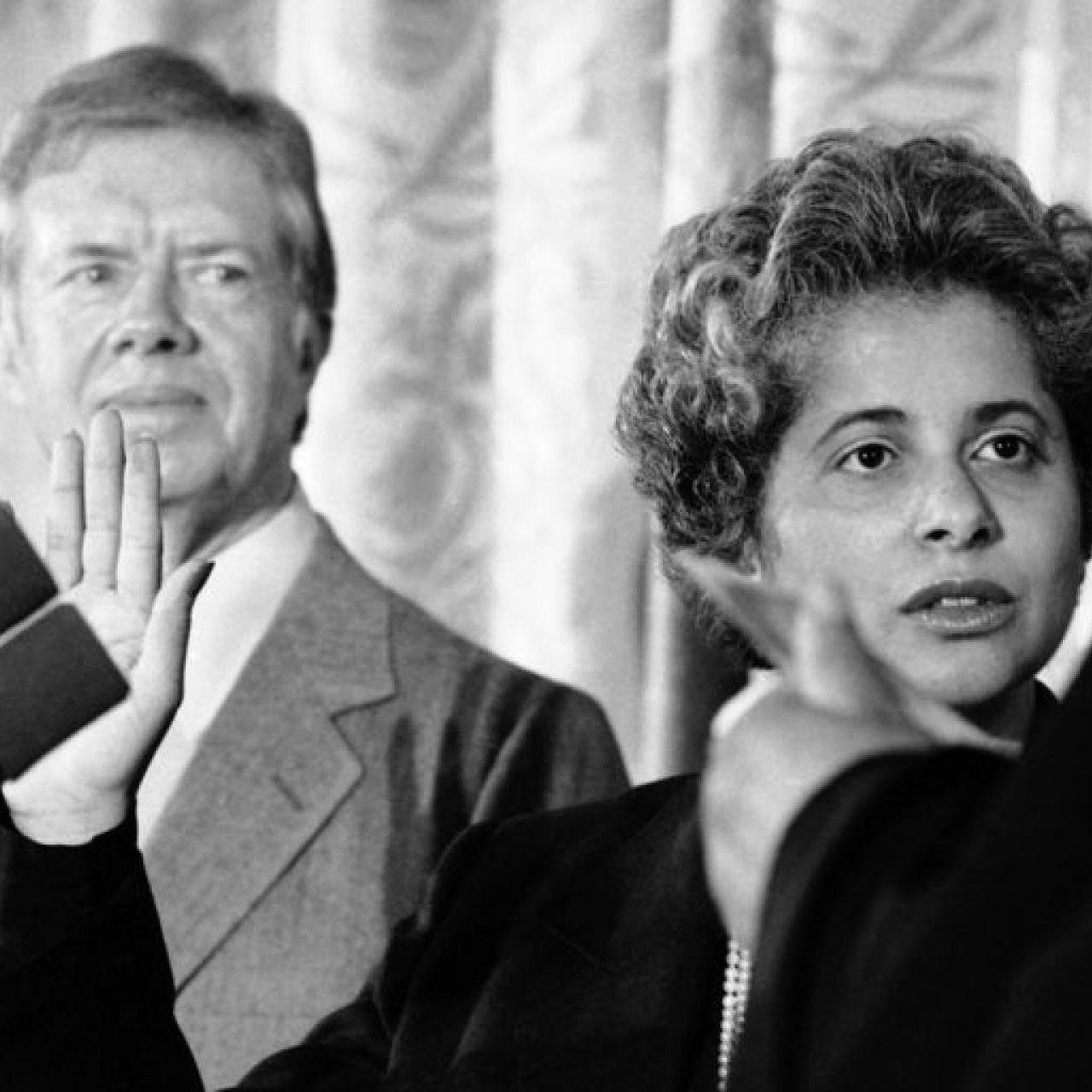
Andrew Young was appointed by President Carter to serve as the United States Ambassador to the United Nations in 1977, a cabinet-level position which was another first for African American appointments in American politics. The Ambassador to the United Nations is America’s chief representative in the world’s preeminent international body and casts the nation’s vote in the U.N. Security Council, which is responsible for maintaining global order. In an interview on Dec. 31, with Atlanta News First, Young spoke of their initial meeting in 1970, during his Congressional campaign and the former president’s bid to become Georgia’s governor, calling him “probably the wisest and most knowledgeable person I’ve known.”
At Carter’s state funeral, Young delivered the homily, which is a scripture reading followed by a commentary. Young spoke of Carter’s sensitive, spiritual, and inclusive nature.
Dr. King used to say that greatness is characterized by antitheses strongly marked. You’ve got to have a tough mind and a tender heart. And that was Jimmy Carter.”
“Time and time again, I saw in him the ability to achieve greatness by the diversity of his personality and his upbringing,” Young said. “Dr. King used to say that greatness is characterized by antitheses strongly marked. You’ve got to have a tough mind and a tender heart. And that was Jimmy Carter. He grew up in the tremendous diversity of the South and he embraced both sides.”
“He went out of his way to embrace those of us who had grown up in all kinds of conflict,” Young explained. “But that was the sensitivity, the spirituality that made James Earl Carter a truly great president. James Earl Carter was truly a child of God. Not only a good farmer, but a nuclear physicist, chosen by Admiral Rickover to assist him in developing a nuclear Navy. But at the same time, he was working on a nuclear Navy, he was thinking of peace on Earth and goodwill towards all men, and especially women and children.”


